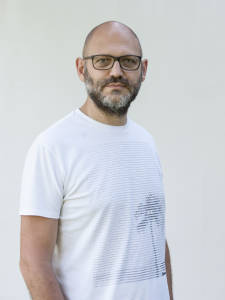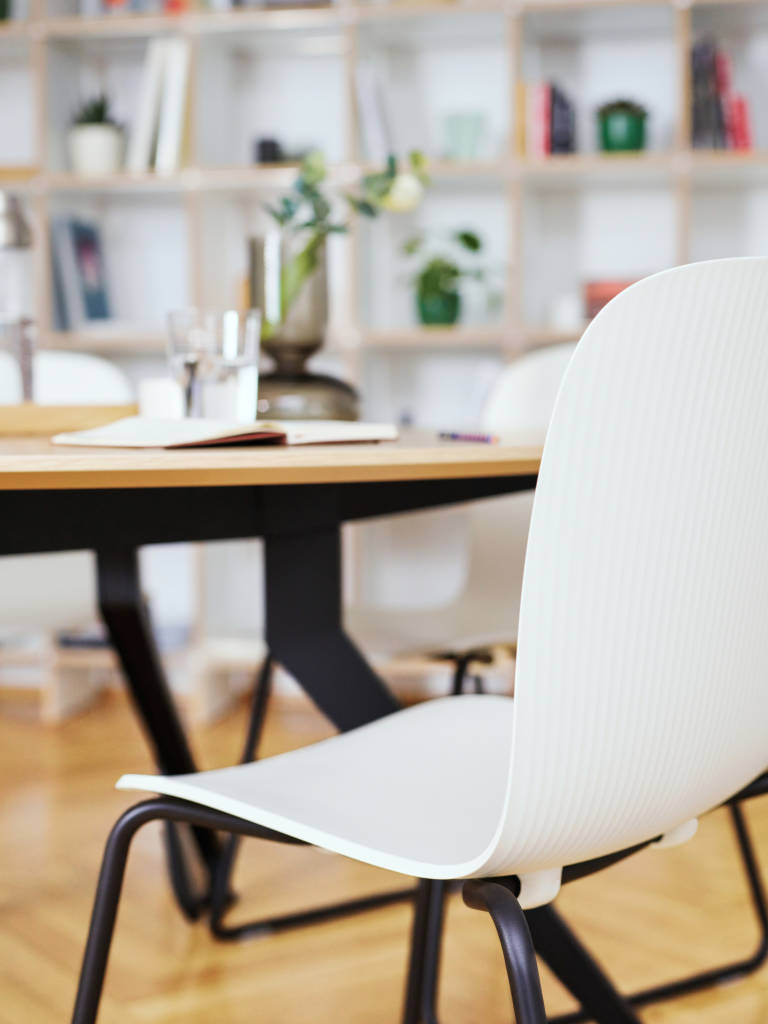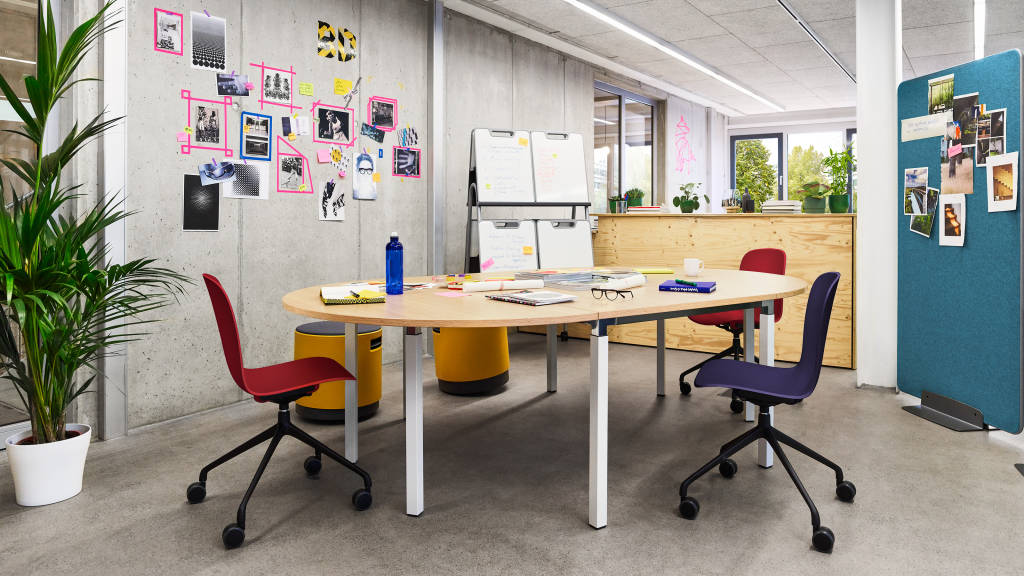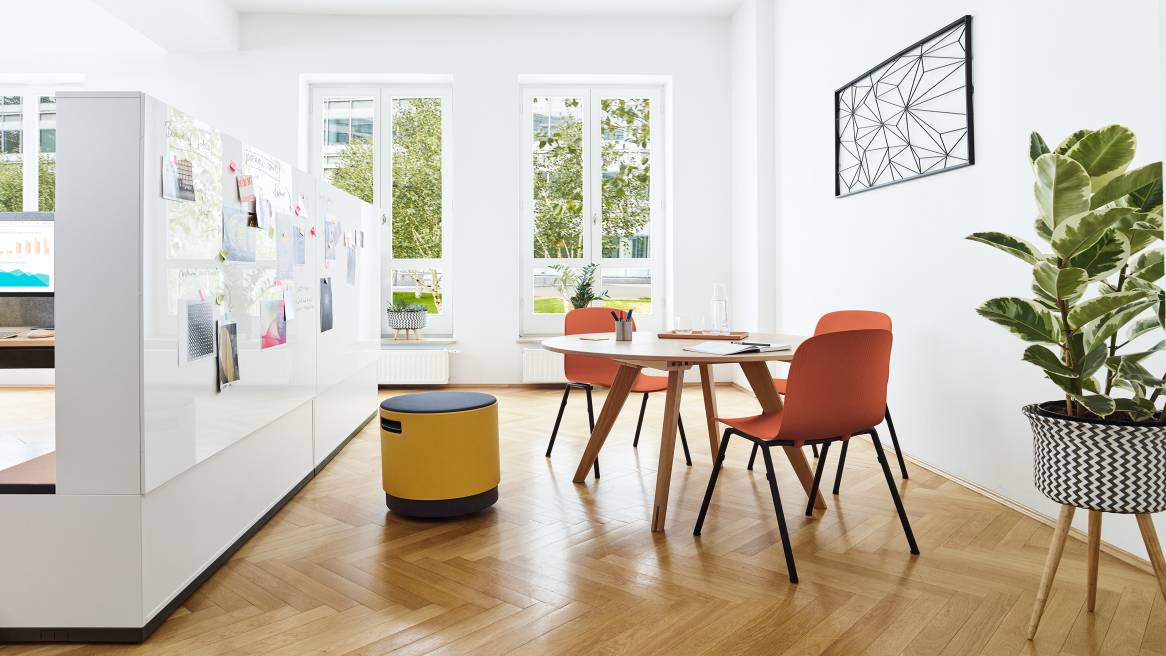Design is Beauty. Beauty is Democracy.
Odo Fioravanti on design, beauty and how Cavatina brings the human element back to work
The line between who he is and what he does is beyond blurred. Design is his life and he gives it everything he has. Known as The Chairman, Odo Fioravanti is a multiple award-winning designer whose passion for bringing justice to people through beauty in their everyday lives has led to the creation of everything from jewelry to surfboards, and of course, a range of distinguished chairs. Cavatina, his latest chair created in collaboration with Steelcase, will be available in Europe, the Middle East and Africa, and is here to humanize today’s workplaces. We talked with Fioravanti to discover who he is, what drives his passion and how Cavatina came to be.

Discovering design
Fioravanti is now hobbyless. Making things for as long as he can remember, he grew up in the Italian countryside designing and building things in his uncle’s workshop. “I always felt a strong internal drive to make new things. To me, it is a natural behavior and need. It’s amazing, I’m hobbyless because my hobby became my job.” The natural pull towards creating runs in the Fioravanti family; with an art teacher as a mother, Fioravanti’s childhood home was an environment where designing, reading and pursuing a passion for many different things was encouraged.
At first, his desire to make things led Fioravanti to study engineering, but he made a pivot when Italy’s first design school, Politecnico di Milano School of Design, opened. “Design somehow saved my life. I discovered it by chance. When I was studying engineering, I started to think I was failing everything, but when I heard of the new school opening I realized design could be a job. As a child, I thought only companies made things, I didn’t think there was ever someone designing objects.”
Passion is preserving
Chairs also became Fioravanti’s specialty by chance. After he won the XXII Compasso d’Oro Prize ADI, for the Frida chair in partnership with Pedrali, offers from other companies to collaborate on chairs starting rolling in. Things naturally took their course and now he has a collection of 10 chairs to his name. But, success doesn’t come without hard work. “The most important thing I’ve learned as a solo designer is to stand up again after failing. Finding the strength to keep pushing on your ideas isn’t easy and it’s made me stronger.”
Persevering is difficult, but Fioravanti’s advice to new designers is to answer the question within themselves before seeking external validation. “Some designers are looking for people who say their idea is good, but often the question is inside them and they should find the answer and believe in their idea. It’s about finding a balance between what you believe and what others think.”
Beauty needs no explanation

“As a designer, you are a bridge between the world of things made by humans and the humans themselves.”
This craving for balance is at the core of Fioravanti’s design philosophy. Learning from Italy’s rich design history, Fioravanti compares the way the Romans used beautiful architecture in cities and spaces accessible to everyone to what design should focus on today — gifting beauty to the everyday person in their everyday lives to create a just, democratic world. “Beauty is the starting point to bring justice to the everyday lives of people. Beauty is the message design should work on. Beauty has no need to be explained. It needs no caption. It is the language we should use. In a way, beauty is homeopathic medicine for our everyday lives.”
This medicine may be needed now more than ever. As life continues to get more high tech we lose human touch. “As a designer, you are a bridge between the world of things made by humans and the humans themselves. It’s about mixing things the right way, building a bridge between the body and the artificial world.”
This blend between tech and touch is captured in his design process. “My process is messed up,” he says with a laugh. “It’s always changing. Part of the way I design is to mix new technologies with a lot of time in the non-digital world.” This mix makes the creative process messy, but Fioravanti likes it that way. “My studio is a physical inferno. I like combining the cleanness of tech with the hell of making things with my hands. It’s a liquid world where things mix a lot. Separating things is impossible.”
Cavatina tells a human story

Fioravanti’s right, our lives have become so liquid that the line between one world and another is gone. Life mixes with work and work with life. “The gradient between working and living is shifting. For decades work was transforming us into tools, gears in a big machine, avoiding things that make us different than machines. But we can’t give just a part of us, we also bring our human side to work and this tension is changing office spaces.”
It’s this focus on bringing the human side of work back to the office that led to Cavatina. “Cavatina is how new working spaces should be made. There are many different versions to fit any need for people designing these new workspaces. Chairs are human, democratic, accessible, they become a companion for the people that use them every day.”
A Cavatina is a moment in an opera when a character enters the stage and presents themselves. Often, it’s a bold expression, a promise of performance. It’s the notion of making a statement that lends itself well to the mission of his collaboration with Steelcase. “The opera is all about the human story — tragedies, beautiful love stories, Cavatina brings the human element to work.”


